Fall 2020 Winning Poems in the Traditional/Pantoum Category
Judge: Erica Goss
First Place: “Say Their Names” by Dan Kaufman
As we step toward justice, we must say their names.
Mr. Arbery, Ms. Taylor, Mr. Floyd, discarded while Black.
Knee-necked, bulleted, erased by cold aims.
The roll call continues, each a bitter flashback.
Mr. Floyd, Mr. Arbery, Ms. Taylor, disposed of while Black.
From presumption, abrupt execution.
The roll call unending, each bitter flashback
reveals a toxic, law-shrugging solution.
From presumption, of course, execution.
Their aspect is other. They could be fictitious.
Law-shrugging seems just the solution.
Due process? That’s not expeditious.
Another. Another. Another. Their names aren’t fictitious.
These people aren’t players in Porgy and Bess.
Due process is not expeditious,
yet compared to injustice, it doesn’t oppress.
These people aren’t extras from Porgy and Bess,
but our brothers and sisters, callously slain.
Scaled against fiction, injustice oppresses,
while lynchings stretch out in an unbroken chain.
The lives of our brothers and sisters lie shattered,
knee-necked, bulleted, quashed by quick aims.
Ms. Taylor, Mr. Floyd, Mr. Arbery. Their Black lives matter.
As we step toward justice, keep saying their names.
Judge’s Note: I chose this poem as the winner of the Pantoum category because of its skill with the form, its timeliness, and its clear call to action. “Their names aren’t fictitious,” the writer reminds us, nor “extras from Porgy and Bess.” These are real people whose lives ended tragically and must not be forgotten. The poem appeals to our sense of fairness and decency.
Poet’s Bio: Dan Kaufman’s poetry has appeared in Sudden Meteors, Light Rising, Jefferson Journal, Verseweavers, Sky Island Journal, Windfall, and has been recognized by the Jessamyn West Poetry Award, the Southern Oregon Poetry Prize, the National Federation of State Poetry Societies and the Oregon Poetry Association. Dan has been a local and regional judge for Poetry Out Loud and a featured reader at the annual William Stafford celebration at Southern Oregon University.
Second Place: “Prime the Big Bang to Reset the Clocks” by Barbara Blanks
So it begins—an end of clocks,
for time itself is slowing down.
No sound of ticking, no more tocks
and what was green is turning brown
for time itself is slowing down.
The sun beats on, the rain is gone,
and what was green is turning brown.
This silence—like a breath, undrawn.
The sun beats on, the rain is gone.
No steady cadence marks the hours.
This silence, like a breath undrawn,
deletes our lives, erases, scours.
No steady cadence marks the hours.
The past and future fabric frays,
deletes our lives, erases, scours.
The cradle of mankind decays.
The past and future fabric frays—
no sound of ticking, no more tocks.
The cradle of mankind decays,
so it begins—an end of clocks.
Judge’s Note: This poem makes use of the pantoum’s ability to weave a spell from words. The poem’s environmental message compares the slowing down of time to the loss of “past and future fabric.” As the lines repeat and vanish, so do the hours that mark our lives.
Poet’s Bio: Barbara Blanks, a former Ft. Stevens resident, is the author of seven books, co-author of one, and published in a variety of anthologies. Barb is known for her exuberant love of life, the liberties she often takes with her reality, and her pursuit of a sense of direction. She is also admired for her stick-to-it-iveness, although she mostly sticks to her unmopped kitchen floor. Website: www.barbara-blanks.com
Third Place: “Visiting Hours During the Pandemic” by Ann Farley
What am I doing here? What am I doing here?
He asks, but meaning is mumbled behind his mask.
We sit in the sun on folding chairs by the parking lot.
Cars, delivery trucks, people — our words can’t compete.
He asks, but meaning is mumbled behind his mask.
By here, does he mean alive? The facility is understaffed.
Cars, delivery trucks, people — our words can’t compete.
His mask slips to the end his nose as he reaches for me.
By here, does he mean alive? The facility is understaffed.
His neck is white stubble. Has he forgotten how to shave?
His mask slips to the end of his nose as he reaches for me.
He doesn’t understand why I don’t reach back.
His neck is white stubble. Has he forgotten how to shave?
We sit in the sun on folding chairs by the parking lot.
He doesn’t understand why I don’t reach back.
What am I doing here? What am I doing, here?
Judge’s Note: This short poem packs a punch in its poignant details: the speaker visits a loved one during the pandemic, someone who can’t understand what’s happening to him. As traffic noises drown out conversation, he wonders why his visitor can’t show him affection.
Poet’s Bio: Ann Farley, caregiver and poet, is happiest outside, and preferably at the beach. When travel isn’t an option, she relies on her vivid imagination, which takes her far away from her home in Beaverton, OR.
Judge’s Bio: Erica Goss won the 2019 Zocalo Poetry Prize. Her collection, Night Court, won the 2017 Lyrebird Award from Glass Lyre Press. Her work has been nominated for the Pushcart Prize and Best of the Net. Recent and upcoming publications include Spillway, A-Minor, Redactions, Consequence, Slant, The Sunlight Press, The Pedestal, San Pedro River Review, and Critical Read. She is the founder of Girls’ Voices Matter, a filmmaking workshop for teen girls. Erica served as Poet Laureate of Los Gatos, CA, from 2013-2016. She lives in Eugene, Oregon, where she teaches, writes and edits the newsletter Sticks & Stones.

